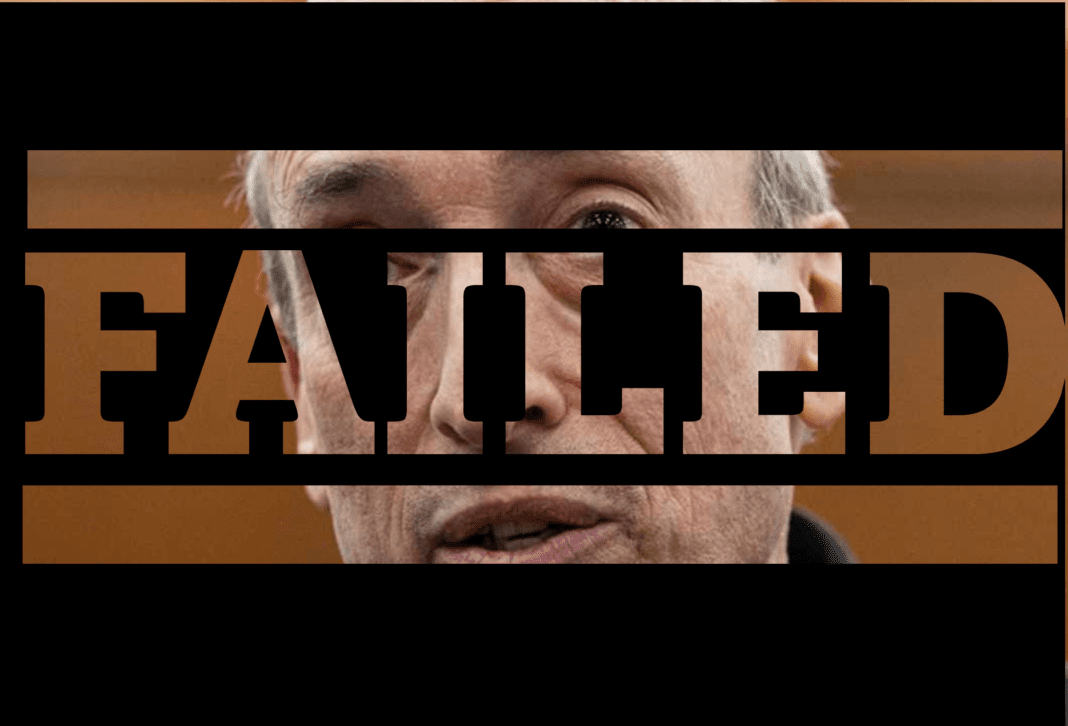As the Chairman of the U.S. Securities and Exchange Commission (SEC), Gary Gensler holds a crucial role in shaping the regulatory environment for cryptocurrencies in the United States. Given the SEC’s mandate to protect investors, maintain fair, orderly, and efficient markets, and facilitate capital formation, it falls squarely within Gensler’s responsibilities to navigate the complex and evolving landscape of digital assets. So far, Gensler failed to adequatly address the issues of the dawning crypto and CyberFinance era!
Preparing For CyberFinance
The SEC Chair’s leadership is pivotal in crafting policies and regulations that address the unique challenges and opportunities posed by cryptocurrencies. This includes ensuring transparency, preventing fraud, and establishing clear guidelines for market participants.
Gensler’s background in financial regulation and his understanding of blockchain technology certainly position him to effectively guide the SEC in adapting existing legal frameworks to accommodate the growing crypto industry, thereby providing clarity and stability for investors and innovators alike.
Moreover, Gensler’s role extends beyond mere regulatory enforcement; it encompasses the strategic positioning of the United States in the global financial arena, particularly in emerging sectors like cryptocurrencies. In an era where digital assets are increasingly seen as integral to the future of finance, Gensler’s actions and decisions can significantly influence the competitiveness of the U.S. in this space.
By establishing a balanced and forward-thinking regulatory framework, Gensler can foster an environment conducive to innovation and growth in the crypto sector. This is critical not only for protecting investors and maintaining market integrity but also for ensuring that the U.S. remains at the forefront of the digital financial revolution. The SEC, under Gensler’s leadership, therefore, has a vital role in shaping how the U.S. navigates the transition to what many view as the next iteration of the financial system, marked by the widespread adoption of crypto and blockchain technologies.
The Role of the SEC Chair
The role of the SEC Chair can be described via some key aspects:
- Leadership of the SEC: The Chairman leads the SEC, a federal agency responsible for enforcing the nation’s securities laws and regulating the securities industry, the nation’s stock and options exchanges, and other electronic securities markets in the United States.
- Policy Maker and Regulator: As the head of the SEC, the Chairman is responsible for setting the agenda and priorities of the Commission. This includes developing policies to protect investors, maintain fair, orderly, and efficient markets, and facilitate capital formation.
- Enforcement of Securities Laws: The SEC, under the Chairman’s leadership, enforces securities laws to prevent fraud, insider trading, and other malpractices in the stock market and broader financial sector. This enforcement is critical to maintain investor confidence and market integrity.
- Regulation of Securities Markets: The Chairman oversees the regulation of securities markets, which includes the supervision of securities exchanges, brokers and dealers, investment advisors, and mutual funds. The SEC aims to ensure transparency and fairness in these markets.
- Investor Protection: One of the SEC’s primary roles is to protect investors. The Chairman is instrumental in implementing policies and measures to ensure that investors receive accurate and complete information about companies and securities they invest in.
- Financial Disclosure: The SEC, under the Chairman’s guidance, requires public companies to disclose meaningful financial and other information to the public. This allows investors to make informed decisions about investments.
- Political Appointment: The SEC Chairman is a political appointee, nominated by the President of the United States and confirmed by the Senate. Consequently, the Chairman can be influenced by the political and economic priorities of the administration they serve under.
- Liaison with Other Government Entities: The Chairman often coordinates with other branches of government, including Congress and the Executive branch, on issues related to securities regulation and financial markets.
- Global Financial Leadership: The Chairman often represents the U.S. in international financial regulatory discussions and can influence global financial regulatory policies and standards.
- Public Communication and Representation: As the public face of the SEC, the Chairman communicates with investors, industry, and the public about SEC policies and actions, and represents the Commission in various public forums.
Conclusion
In summary, the SEC Chair plays a pivotal role in shaping the U.S. financial markets, influencing both domestic and international financial policies, and ensuring the protection of investors and the integrity of the financial system. The position holds considerable influence and responsibility in the intersection of finance, law, and politics.
Gensler has so far taken the view that the existing securities laws and regulatory framework are sufficient to regulate the emerging crypto sector. The US scene, led by Coinbase, disagrees. Politicians and regulators in other jurisdictions also see things differently. The EU has therefore created the Markets in Crypto-Assets Regulation (MiCA).
Gensler seems to be very much alone in his stance worldwide. This could massively damage the competitiveness of the US in the age of emerging cyber finance.
